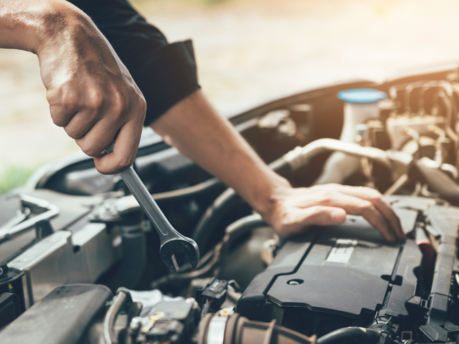5 ways to keep your car battery healthy
Tips for maximizing your car battery's lifespan
While your engine may be the mechanical mastermind under the bonnet, your battery acts as its right-hand man, providing that all-important power - without it, your car doesn’t go very far!
As with other batteries that you find in so many of our day-to-day possessions - from watches to smartphones - car batteries degrade over time; most motorists will know the dreaded turn-over sound of a battery that’s past its best!
What do our car batteries do?
In addition to actually starting the car through the ignition system, your battery is in charge of all the electrical elements of your car, such as the stereo, navigation system, lights, and windscreen wipers.
How long do batteries last?
Car maintenance experts Halfords suggest that car batteries generally last between 3-5 years. However, old age isn’t the only thing that brings a car battery’s life to an end - corrosion, broken internal connections, and low battery fluid levels can all see you being jump-started on your driveway, or recovered to a service centre.
How do you keep your car battery healthy?
While they do have a limited lifespan, there are ways in which you can keep your car battery going as long as possible; here’s how to keep your car battery healthy…
1. Avoid using tech without the engine on
A rookie error if ever there was one! Whilst parking up with the engine off and the radio on may seem almost relaxing, it will actually drain your battery - that’s not very relaxing! Using power while the engine isn’t on, for electronics such as the stereo or the air conditioning, leaves you running the risk of a flat battery when you go to start up.
2. Drive regularly
A car that’s left standing for too long is likely to have a flat battery - something many of us worried about during lockdowns. Regular journeys, with at least the odd long one, will keep the battery ticking over - batteries recharge while we’re driving, so short journeys aren’t always enough.
If you’re not using the car for a length of time, start it up and leave it running in a well-ventilated place (not a garage, for example) for 15 minutes or so a week, or invest in a trickle charger, which can slowly recharge the battery while it’s parked up.
3. Keep your battery clean
Corrosion can occur when debris builds up on the surface of the battery itself, and as we know, corrosion can lead to a dead battery. Knowing where the battery is located under the bonnet and giving the terminals a wipe-over regularly will help reduce the risk.
4. Make sure everything is switched off when you leave it
It can be easy to forget to turn the lights out or fail to shut a door properly (which results in the interior light staying alight all night) leading to disappointment and frustration when you go to start up in the morning.
5. Help out on the clutch
By pressing your clutch when you start your car, you take a bit of the strain from the battery and the starter motor. It’s something that soon becomes a habit, and it’s generally good practice to maximise your battery health.
Concerned about car health?
If you’re looking to protect yourself against some of the unexpected costs that cars can bring about in general (making a new battery a little more easy to bear, you may well be interested in one of our leading warranty plans, covering eligible repairs and removing a whole lot of stress.

